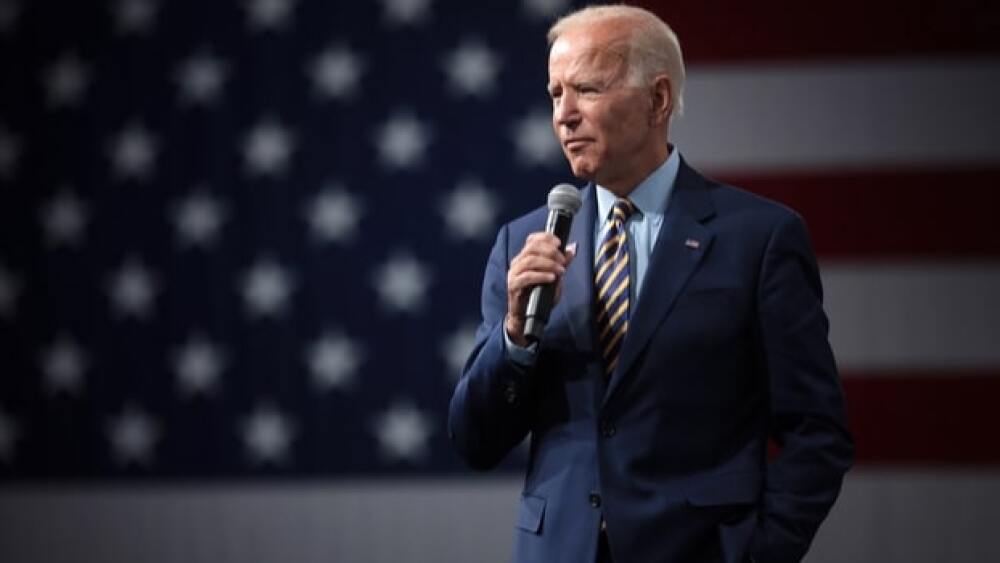President-elect Joe Biden hit the ground running this morning with the announcement of his transition team’s COVID-19 advisory board.
VP Brothers/Shutterstock
President-elect Joe Biden hit the ground running this morning with the announcement of his transition team’s COVID-19 advisory board that will be co-chaired by public health experts and includes Rick Bright, a vaccine expert and the former director of the Biomedical Advanced Research and Development Authority (BARDA), who raised concern about President Trump’s response to the pandemic in April.
The transition team will be helmed by co-chairs David Kessler, a former commissioner of the U.S. Food and Drug Administration (FDA) and current professor of Pediatrics and Epidemiology and Biostatistics at UCSF; Vivek Murthy, a former Surgeon General of the United States; and Marcella Nunez-Smith, an Associate Professor of Internal Medicine, Public Health, and Management at Yale University.
In his announcement this morning, Biden said dealing with the coronavirus pandemic is one of the most important battles his administration will face. He said he intends to be “informed by science and by experts.”
“The advisory board will help shape my approach to managing the surge in reported infections; ensuring vaccines are safe, effective, and distributed efficiently, equitably, and free; and protecting at-risk populations,” Biden said in a statement.
COVID-19 infections continue to skyrocket across much of the United States. According to the Johns Hopkins COVID-19 dashboard, there are now more than 10 million positive cases in the United States and more than 237,000 COVID-related deaths.
The inclusion of Bright on the advisory board signals that not only will the Biden team will include experts in their field, but can also be seen as a repudiation of the Trump administration’s treatment of those experts who disagreed with the manners in which the White House has tackled the pandemic over the past six months. In April, Bright was terminated from his role as director of BARDA after he raised concerns over statements made by the White House regarding malaria drug hydroxychloroquine as a potential treatment for COVID-19. At the time, Bright said he was removed from the position he held since 2016 because he spoke out against repeated statements made by the president that lacked scientific merit. Trump famously touted hydroxychloroquine as a panacea against COVID-19 despite the fact that multiple clinical studies showed the malaria treatment did not provide a robust response in patients.
When he was terminated from BARDA, Bright was reassigned to a narrower role at the National Institutes of Health. He ultimately resigned from the federal government last month, saying the Trump administration “ignores scientific expertise, overrules public health guidance and disrespects career scientists.”
In addition to his roles at BARDA and NIH, Bright served as an advisor to the World Health Organization. He got his start in government service researching influenza vaccines at the U.S. Centers for Disease Control and Prevention.
Other members of the transition team include Luciana Borio, a former FDA official; Ezekiel J. Emanuel, an oncologist and chair of the Department of Bioethics at The Clinical Center of the National Institutes of Health; Atul Gawande, professor of Surgery at Brigham and Women’s Hospital; Celine Gounder, a Clinical Assistant Professor at the NYU Grossman School of Medicine who studied TB and HIV; Julie Morita, executive vice president of the Robert Wood Johnson Foundation; Michael Osterholm, director of the Center for Infectious Disease Research and Policy at the University of Minnesota; Loyce Pace, executive director of Global Health Council; Robert Rodriguez, professor of Emergency Medicine at the UCSF School of Medicine; Eric Goosby, an internationally recognized expert on infectious diseases and professor of Medicine at the UCSF School of Medicine.
Biden announced his transition team the same day Pfizer and its vaccine-development partner BioNTech announced their two-dose regimen candidate generated a vaccine efficacy rate above 90% at 7 days following the second dose.





